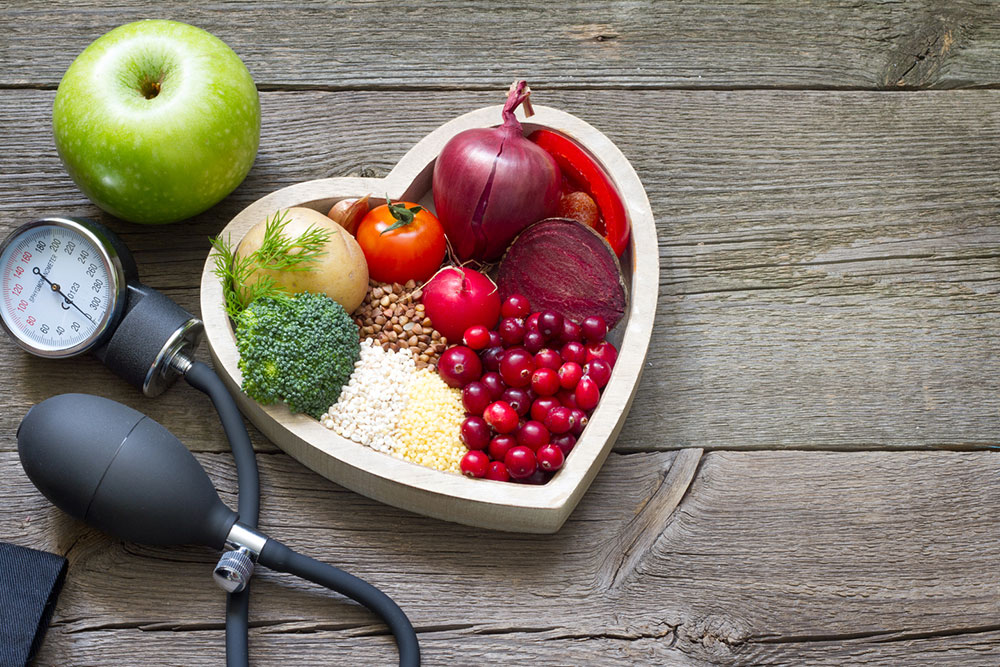Natural and Effective Ways to Lower Cholesterol Levels for Better Heart Health
This comprehensive guide explores natural strategies to lower cholesterol levels effectively without medication. Emphasizing diet, exercise, weight management, and lifestyle changes, the article provides practical tips to improve heart health sustainably. Learn how to modify your diet, include heart-friendly fats, boost physical activity, and avoid harmful habits to achieve optimal cholesterol balance and reduce cardiovascular risks naturally.

Natural and Effective Ways to Lower Cholesterol Levels for Better Heart Health
Managing cholesterol levels is crucial for maintaining cardiovascular health. While medications are available, many individuals can achieve healthy cholesterol levels through lifestyle changes. This comprehensive guide explores natural strategies to reduce cholesterol, emphasizing diet, exercise, and other habits that promote heart wellness.
Over 100 million Americans are affected by high cholesterol, a condition that significantly increases the risk of heart attacks, strokes, and other cardiovascular diseases. Cholesterol, a waxy substance found in blood fats, is essential for producing hormones and building cell membranes. Nonetheless, excessive cholesterol deposits can lead to clogged arteries and increased cardiovascular risk. The causes of elevated cholesterol are multifaceted, including poor dietary habits, lack of physical activity, genetic predispositions, and sedentary lifestyles. Fortunately, adopting healthier habits can significantly improve cholesterol levels naturally.
Achieving and maintaining healthy cholesterol levels without relying solely on medication is entirely possible. Lifestyle modifications focusing on diet, physical activity, and other habits can make a profound difference. Below are detailed, practical strategies to help you naturally lower your cholesterol and enhance your overall heart health.
Modify Your Diet
Diet plays a pivotal role in managing cholesterol. Even if your meal choices haven't been ideal historically, it's never too late to make impactful changes. Emphasize eating a balanced, nutrient-rich diet that supports heart health. Here are some specific dietary tips to get you started.
Avoid Trans Fats : Trans fats are known to raise 'bad' LDL cholesterol levels while decreasing 'good' HDL cholesterol, thereby increasing the risk of cardiovascular disease. These fats are often found in processed foods, baked goods, fried items, and margarine. Always check food labels for partially hydrogenated oils and opt for healthier alternatives. Eliminating trans fats from your diet can have immediate benefits for your cholesterol profile.
Choose Heart-Healthy Fats : Incorporate sources of healthy fats such as monounsaturated and polyunsaturated fats. These fats can help reduce LDL cholesterol levels and promote good cholesterol. Use olive oil, canola oil, sunflower oil, and peanut oil for cooking. Select lean cuts of meat and avoid saturated fats commonly found in processed meats and full-fat dairy products.
Increase Soluble Fiber Intake : Soluble fiber effectively reduces cholesterol absorption in the bloodstream. Foods rich in soluble fiber include oats, barley, beans, lentils, fruits like apples and citrus, and vegetables like carrots and Brussels sprouts. Incorporating these foods into your daily diet can significantly lower LDL cholesterol and improve heart health.
Incorporate Omega-3 Fatty Acids : Omega-3 fatty acids are essential for cardiovascular health. They are found abundantly in fatty fish such as salmon, mackerel, sardines, and herring. Plant-based sources include walnuts, flaxseeds, chia seeds, and hemp seeds. Regularly consuming omega-3-rich foods helps lower triglycerides, reduce inflammation, and can positively influence your cholesterol levels.
Engage in Regular Physical Activity
Exercise is a cornerstone of natural cholesterol management. Engaging in moderate to vigorous physical activity on a consistent basis increases HDL ('good') cholesterol while lowering LDL ('bad') cholesterol). Activities like brisk walking, jogging, cycling, swimming, and playing sports can be enjoyable ways to boost your heart health. Aim for at least 150 minutes of moderate exercise or 75 minutes of vigorous activity each week, as recommended by health authorities. If you prefer a more relaxed approach, even daily activities like walking stairs or gardening are beneficial.
Maintain a Healthy Weight
Weight management plays a significant role in controlling cholesterol. Losing even 5-10% of your body weight can lead to substantial improvements in lipid levels and overall heart health. Combining regular exercise with a nutritious diet tailored to your needs supports weight loss and cholesterol management. Consult healthcare professionals to develop a personalized plan based on your health status, activity level, and dietary preferences.
Limit Alcohol Intake
While moderate alcohol consumption might increase HDL cholesterol, excessive intake can have detrimental effects on heart health and increase the risk of stroke and other health issues. If you choose to drink alcohol, do so responsibly and stick to recommended limits. Abstaining entirely if you are not a drinker is a healthy choice for many individuals seeking optimal heart health.
Quit Smoking
Smoking damages blood vessels, reduces HDL cholesterol levels, and increases the likelihood of cardiovascular diseases. Quitting smoking is one of the most effective steps you can take to improve your lipid profile and overall heart health. Support programs, counseling, and medications can assist in this process. Embracing a smoke-free lifestyle not only benefits your cholesterol but also enhances your overall wellness and longevity.





